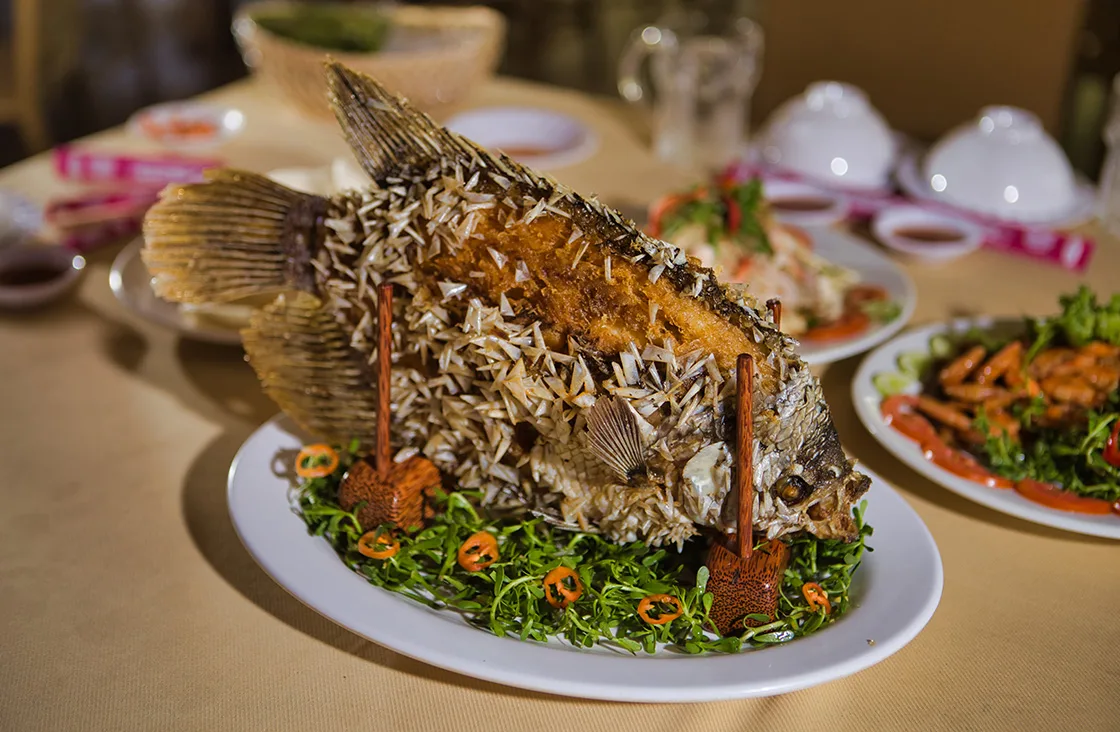Are you looking for a unique and unforgettable journey through the sights, culture, and flavors of Ben Tre, Vietnam? Look no further than Mekong Essence! Their cooking tours provide a true taste of traditional Vietnamese cuisine with the beautiful backdrop of the Mekong Delta. Experience the unique culture and flavors of Ben Tre as you learn to prepare delicious local dishes and explore the sights of this picturesque area. Get ready to embark on an unforgettable journey that will stay with you long after your trip is over.
- Section 1: What to Expect
- Section 2: The Mekong Delta
- Section 3: Ben Tre
- Section 4: Traditional Vietnamese Cuisine
Section 1: What to Expect
Mekong Essence provides cooking tours in Ben Tre, Vietnam. Learn how to make unique and delicious local dishes surrounded by the picturesque Mekong Delta! Get a true taste of traditional Vietnamese cuisine on an unforgettable journey through the sights, culture and flavors of Ben Tre. Our expert guides will provide a hands-on experience in the art of cooking, teaching you how to prepare a variety of dishes with fresh ingredients. Whether you are a beginner or an experienced chef, we offer a variety of tours and classes to accommodate your skill level. With each class, you will leave feeling confident in your newfound cooking skills and ready to impress your family and friends with your new Vietnamese recipes! We will provide you with the knowledge, skills and recipes to make delicious Vietnamese food at home. All of our classes emphasize the use of traditional Vietnamese ingredients, techniques, and flavors. We also provide you with helpful tips on the history and cultural significance of each dish, so you can better appreciate the cuisine and its place in Vietnamese culture. With this, you will also gain an understanding of how to combine and use the different ingredients in order to bring out the best flavors in each dish. As well as this, we will show you the importance of presentation in order to make your dishes look as good as they taste.
Section 2: The Mekong Delta
The Mekong delta region encompasses a large portion of south-western Vietnam of over 40,500 km2 (15,600 sq mi). It is a flat, low-lying plain that is crisscrossed by many rivers and canals and is considered one of the most important rice-producing regions in the world. The size of the area covered by water depends on the season. Its wet coastal geography makes it an important source of agriculture and aquaculture for the country. During the dry season, the delta region is transformed into an extensive network of freshwater marshes and lakes. During the wet season, however, the delta can expand up to five times its normal size and become a complex network of interconnected canals, rivers and islands. This expansive delta ecosystem is home to a diverse range of wildlife, including hundreds of species of fish, reptiles, amphibians and birds.
The Mekong Delta has been dubbed a ‘biological treasure trove’. Over 1,000 animal species were recorded between 1997 and 2007 and new species of plants, fish, lizards, and mammals have been discovered in previously unexplored areas, including the Laotian rock rat, thought to be extinct. It is estimated that as much as 20 percent of the world’s freshwater fish species are found in the Mekong Delta.
Section 3: Ben Tre
Ben Tre is a province in the Mekong Delta, Vietnam.
In 2021, Ben Tre is Vietnam’s 28th largest administrative unit in terms of population. Its geography and culture are unique to the region, making it an ideal destination for people who wish to experience authentic Vietnamese cuisine and learn about the various cooking techniques used by locals.
In the past, Ben Tre province was a desolate area, after a while there were a few groups of people who settled down and often concentrated on high land on the hills and coastal areas, or along the dykes of rivers and canals, convenient for travel, living and avoiding floods. Increasingly, the number of people coming to settle down is increasing, this migration is accompanied by an increase in population, making the forest area increasingly narrow. Therefore, the local authorities have put in place plans to preserve and conserve natural resources while also protecting the area’s cultural heritage.
Ben Tre is also the hometown of Dao Dua, with the nickname “Xu Dua”. Dao Dua has been a well-known symbol of Ben Tre’s culture, history and folklore for many years.
Section 4: Traditional Vietnamese Cuisine
Five basic tastes are combined in meals: sweet, salty, bitter, sour, and spicy.
Each dish’s uniqueness is a reflection of one or more components (nutrients, colors, etc.), which are also centered on a five-point philosophy.
Lemongrass, ginger, mint, Vietnamese mint, long coriander, Saigon cinnamon, bird’s eye chili, lime, and Thai basil leaves are among the ingredients used in Vietnamese cuisine.
Fresh ingredients, minimal dairy and oil use, interesting textures, and a focus on herbs and vegetables are all characteristics of traditional Vietnamese cuisine.
Because many of the dishes are made with rice noodles, papers, and flour rather than wheat, they are frequently naturally gluten-free and low in sugar.
Mekong people enjoy eating fruits, flowers, and herbs.
All three regions of Vietnam’s traditional cuisine share the following characteristics:
Food freshness: Meats are typically only lightly cooked.
Vegetables are typically eaten raw; if they are cooked, they are boiled or stir-fried for a brief period of time.
Vegetables and herbs are present: Vegetables and herbs are frequently used in large quantities and are essential to many Vietnamese dishes.
Texture variety and harmony: watery with crunchy, crisp with crisp, delicate with rough.
In all three regions, dishes based on soups or broths are typical.
Presentation: The condiments that go with Vietnamese meals are frequently eye-catching and colorful.



















